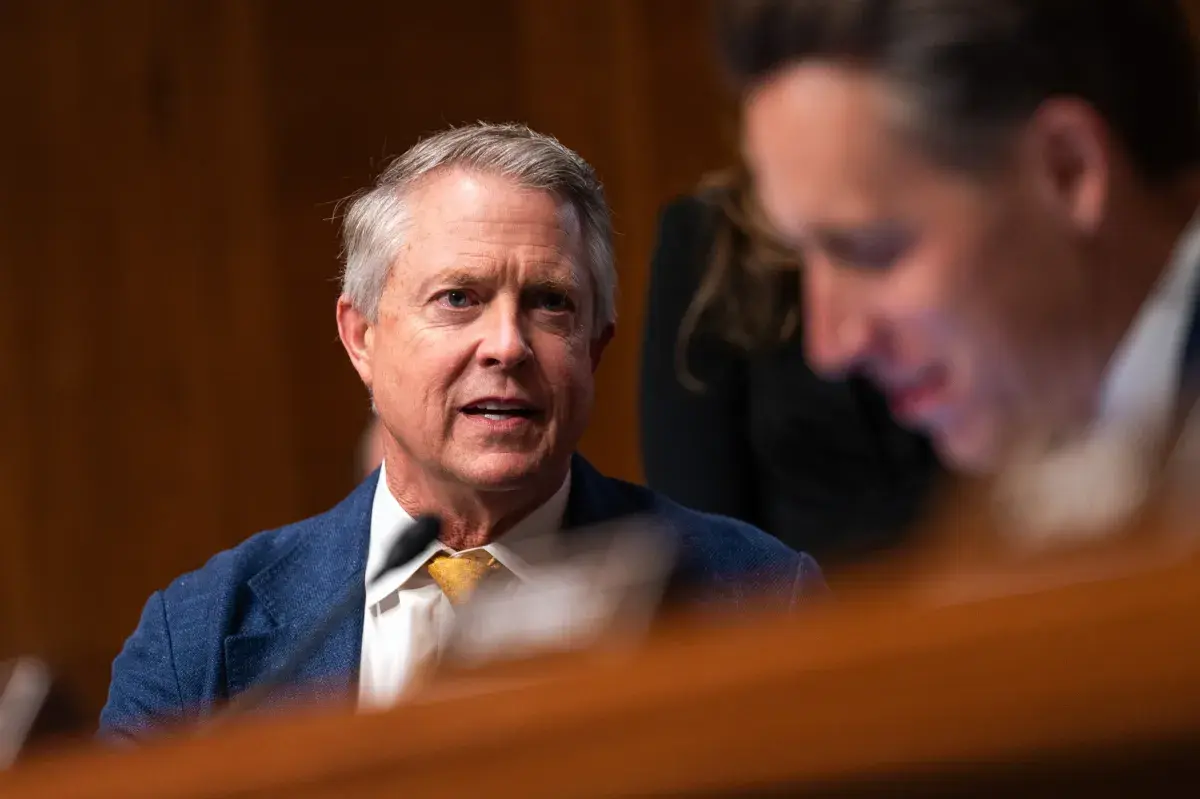Copyright Newsweek

More than 100 lawmakers have written a letter to Kansas Republican Roger Marshall, a member of the Senate Make America Healthy Again (MAHA) Caucus, over concerns about a rule the senator has proposed regarding food chemical regulations. In May, it was reported that Marshall was working on legislation that would preempt state laws tightening the rules on food additives, allegedly titled the Food Ingredient Transparency Act. Though no official draft of the bill appears to have been shared, the letter sent to Marshall by the 157 state representatives suggests that the act would make enforcing stricter food regulations a federal responsibility rather than allowing states to implement their own policies. Newsweek reached out to Marshall's office and the Food and Drug Administration via email for comment. Why It Matters The current dispute sheds light on a broader debate about how food chemicals are regulated. For some time, many have sounded the alarm about how the Food and Drug Administration regulates the ingredients added to food products, as it is easy for companies to claim an ingredient is safe without FDA review. By using the “generally recognized as safe” (GRAS) exclusion, almost 99 percent of all food chemicals introduced between 2020 and 2021 were brought in by companies without FDA review, according to a 2022 study by the Environmental Working Group. This has prompted many states to take matters into their own hands, introducing and passing stricter legislation on food additives, but if Marshall's law is passed, it would prevent states from enforcing their own regulations. What To Know The letter, sent on October 27, comes shortly after 84 organizations sent a letter to Congress over similar concerns. In the state representatives' letter, they urge Marshall to "preserve the power and autonomy of states to protect our consumers and preserve the longstanding collaborative partnership between the federal government and our states." Similarly, the organizations said in their letter that they "strongly oppose efforts to limit the power of states to help ensure the safety of food and food contact chemicals." While the details of the law have not been publicly shared, Timothy Lytton, a professor of law at Georgia State University, told Newsweek the act aims to "standardize ingredient labeling across the U.S., which currently vary by state, tighten the process for approval of food ingredients that are generally recognized as safe by requiring pre-market notification and routine review, and mandate front-of-package labeling regarding key nutrients in addition to the current nutrition label." If imposed, this law would be "very unusual given that states have always had the authority to take steps to improve food safety within the state, and have especially had a lot of authority to increase the nutrition quality of food in school meals," Emily Broad Leib, director of Harvard Law School Center for Health Law and Policy Innovation, and founding director of the Harvard Law School Food Law and Policy Clinic, told Newsweek. She added that in many cases, the actions made by states to ban harmful ingredients have "helped set a course for federal change," whereas, she said that the FDA has taken "a very slow and not very active approach to regulation of additives in food and to removal of additives once there are safety concerns." As companies can use the GRAS exemption to bypass FDA regulation, many states have recently taken action to clamp down on food additives, especially in foods given to children at school. This year alone, more than 120 bills have been introduced in states across the country that would "take steps to ban chemicals in food either for the general public or in schools, or that would warn consumers about risk from those substances," Broad Leib said. 10 states have enacted legislation this year that would take such steps, she added. "This shows there is growing interest from states in improving the quality of food in their states and addressing the various harms consumers face from the food supply, including diet-related disease, cancer, endocrine and reproductive disorders, and negative neurological impacts," she said. What People Are Saying Emily Broad Leib, director of Harvard Law School Center for Health Law and Policy Innovation, and founding director of the Harvard Law School Food Law and Policy Clinic, told Newsweek: "While there are many steps FDA can and should take to improve its oversight (both pre market and post market), states always have had the authority to go above and beyond federal laws in various areas of health, well-being, food safety, and nutrition. So, it would be very unusual, given our constitution and the general authority and duty of states, to take away this power. "It’s even more concerning given that FDA has not done a great job in this area and there is no assurance that FDA is going to get it right. But again, even if FDA reforms its work here, states should still be allowed to take additional steps above a federal floor." Jennifer Pomeranz, a professor of public health policy and management at New York University, told Newsweek: "The biggest concern about preemption in the context of food safety is that the FDA has a long history of inaction even when faced with robust evidence that ingredients in the food supply are associated with harm. If Congress preempts state actions, it leaves the country at the whim of whether the FDA will actually require the removal of unsafe ingredients, something it has historically taken decades to do. "If Congress passes a strong law requiring FDA to remove unsafe ingredients (and to close the GRAS loophole), it will only be successful if FDA actually implements the law. The concern is that FDA will not remove unsafe ingredients, and then the states are preempted from doing so, leaving Americans unprotected." Neal Fortin, a director of the Institute for Food Laws and Regulations at Michigan State University, told Newsweek: "The California ban of Red No. 3 led to a subsequent ban by the FDA. This example illustrates one of the reasons it is important for the states to retain the authority to pass these laws. The states are the laboratories of our democracy and can sometimes find solutions faster than federal action." He added, "One of the troubling aspects of tying the states' hands on legislating food additive laws is that the FDA does not have complete oversight of what goes into foods. There is a huge gap under the generally recognized as safe (GRAS) exception to FDA’s oversight. A risk of any preemption law is that it could tie the states’ hands while still leaving the absence of federal oversight." Timothy Lytton, a professor of Law at Georgia State University, told Newsweek: "State lawmakers and consumer organizations favor stricter standards for food ingredient approval and greater transparency for consumers. However, they worry that industry influence may blunt federal efforts to protect consumers, so they do not want federal standards to preclude—or in legal terms 'preempt'—stricter state standards. "State lawmakers have, in many instances, imposed stricter standards—for example, requiring disclosure of or bans on synthetic dyes in food. State lawmakers want to preserve their power to set standards higher than those of the federal government when their citizens demand greater protection." Keeve Nachman, a professor of environmental health and engineering at Johns Hopkins University, told Newsweek: "There are longstanding concerns with FDA’s authority and ability to evaluate the safety of food chemicals before they are introduced into the food system. While it’s encouraging to hear that the Agency has been instructed to close the GRAS loophole, we don’t know the specifics of the steps they will take to do it and whether it will be enough to protect the public’s health. He added, "States have long played an important role in assessing the safety of food chemicals. In some cases, safety assessments conducted by states can be the basis to prompt action at the federal level, especially when evolving scientific understanding of those chemicals may call earlier safety assessments into question. There can be a powerful synergy between state and federal scientists in evaluating evidence to protect public health. This is absolutely the case for food chemicals, but also in other contexts involving chemical exposures." What Happens Next It is not yet clear whether and when Marshall will bring in his proposed legislation.



